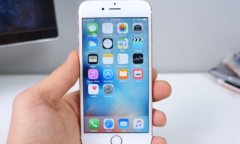By Steve Pak, | February 10, 2016

Woman Sleeping on Plane
A cure for jet lag could be a new treatment that allows a person's body to shift to different world time zones almost four times faster than current therapies. California researchers learned that when a snoozing person is exposed to short periods of flashing light it can automatically prepare the body for new sleeping patterns.
Like Us on Facebook
The study was conducted by Stanford University researchers. It was published in the Journal of Clinical Investigation.
Researchers learned that quick flashes of light about 10 seconds apart delayed fatigue during the next day. Each 2-milisecond flash lasts about as long as a camera flash and is short enough to prevent the person from waking up, according to International Business Times.
The new therapy uses a method called "biological hacking." This technique speeds up how fast the brain can adapt to new time zones.
Stanford researches tested their theory by conducting a study that included 39 volunteers who ranged from 19 to 36 years old.
The study participants daily followed the same sleep schedule for two weeks. They would go to bed and wake up at the exact same time.
Volunteers then slept in a lab. Half of the volunteers were exposed to a constant stream of light, and flashing lights were used on the other half.
The continuous light group got an average 36 minutes more shut-eye the next day. Meanwhile, the flashing light group got in an average two hours more slumber, according to BBC.
The new technique improves the best current jet lag treatment. It shines a steady bright light before a person travels.
A principle of the human body explains why the flashing light was more effective. The retina cells keep working for a couple more minutes after the light flashes stop, while the continuous stream of light slows the response time of the eye's cells.
Zeitzer explained that travelers taking "forward" tips could benefit from the new therapy. The flashing lights could be set to start X hours before the personal normally wakes up.
This would be based on the number of time zones the person will travel through, such as three zones between Los Angeles and New York. The person's biological clock would then be adjusted when they wake up.
Here's a video on beating jet lag:
-
Use of Coronavirus Pandemic Drones Raises Privacy Concerns: Drones Spread Fear, Local Officials Say

-
Coronavirus Hampers The Delivery Of Lockheed Martin F-35 Stealth Fighters For 2020

-
Instagram Speeds Up Plans to Add Account Memorialization Feature Due to COVID-19 Deaths

-
NASA: Perseverance Plans to Bring 'Mars Rock' to Earth in 2031

-
600 Dead And 3,000 In The Hospital as Iranians Believed Drinking High-Concentrations of Alcohol Can Cure The Coronavirus

-
600 Dead And 3,000 In The Hospital as Iranians Believed Drinking High-Concentrations of Alcohol Can Cure The Coronavirus

-
COVID-19: Doctors, Nurses Use Virtual Reality to Learn New Skills in Treating Coronavirus Patients










